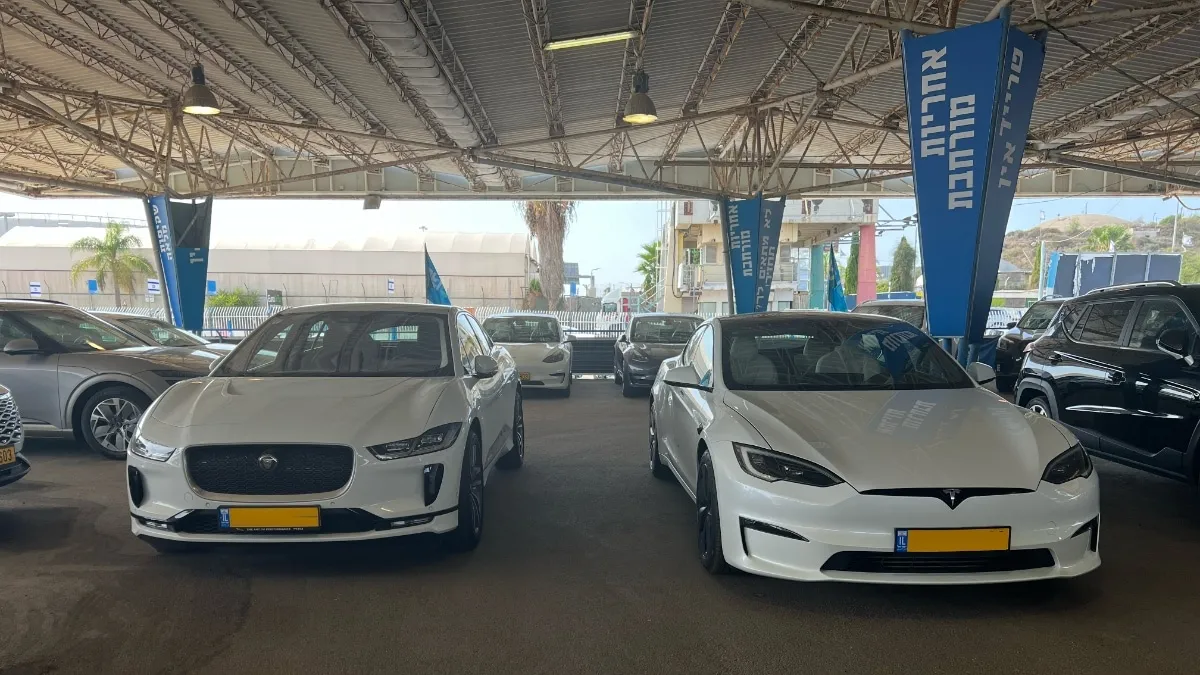The Tax Authority has published the first part of its annual review of the car industry for 2024, which shows that the past year was characterized by extraordinary activity in the sector, despite a year of war.
In total, 336.4 thousand vehicles were imported into Israel, representing a growth of 14.4% compared to 2023, of which 325.9 thousand were passenger cars. This is the second highest figure in Israel's history, after 2016.
The surge in imports is explained by the gradual recovery from the effects of the war, the importers' adaptation to disruptions in maritime transport (following the hackers' attacks), and an attempt to advance imports before the tax increase that came into effect at the beginning of 2025. A third of the annual import was concentrated in December, with a significant portion of it - cheap electric cars from China.
Despite the increase in the number of vehicles, the monetary value of the import remained almost stable at a total of only 25.4 billion NIS, a real increase of only 1.4%. The decrease in transport and insurance costs, along with the entry of cheap electric cars into the market, explain the gap between quantity and value.
The review also shows that the trend of reducing tax benefits continued in 2024. After the benefit for the regular hybrid car was canceled in 2022 and the purchase tax on electric cars was doubled from 10% to 20% in 2023, the tax rose in 2024 to a level of 35%. In addition, the benefit was also canceled for the plug-in hybrid car.
Despite the reduction in benefits, advanced propulsion vehicles (hybrid, plug-in, and electric) continued to gain market share: for the first time, they together crossed the threshold of 50% of the new vehicles registered for traffic. The distribution: 25.4% electric cars, 23.4% non-rechargeable hybrids, and 2.5% rechargeable hybrids.
Unprecedented Car Imports in 2024, Despite War Year
Israel saw a record number of car imports in 2024, with a 14.4% increase from 2023. Despite this, the monetary value of imports remained stable.
11:33 ,07.08.2025
-
Found it useful? Share
-
Share on Facebook
-
Share on X
-
Share on LinkedIn
-
Share via Email
-
Share on WhatsApp
-
Print Article
Related
 03.08.2025
03.08.2025
US Slaps 15% Tariff on Israeli Goods
 26.05.2025
26.05.2025
Economic Committee Greenlights Cancellation of Oven Regulation
 06.05.2025
06.05.2025
Fourth Phase of Import Reform Expands to Baby Food Products
 06.05.2025
06.05.2025
Aluminum Duty Gets Industry Support
 22.04.2025
22.04.2025
Thousands of Viagra and Kamagra Pills Seized at Ben Gurion Airport
 22.04.2025
22.04.2025
Industrialists Urge Treasury to Support Anti-Dumping Duty on Cannabis Imports

